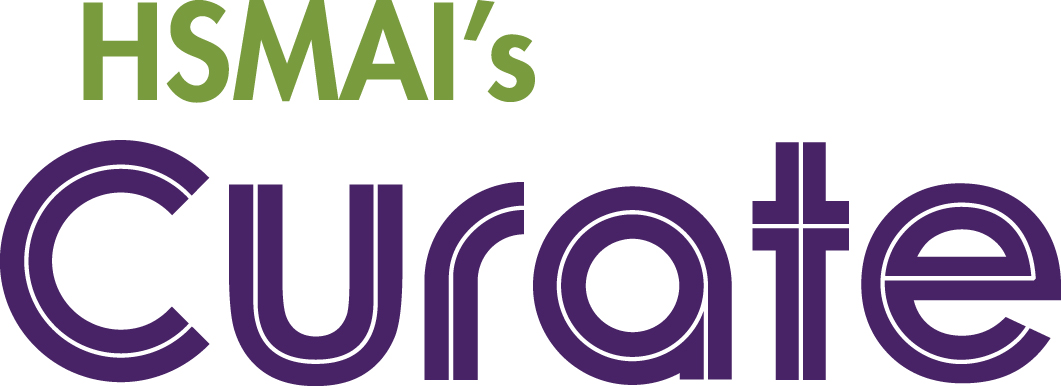By Christopher Durso, Vice President of Content Development, Hospitality Sales & Marketing Association International (HSMAI)
With HSMAI’s Spring Curate 2020 event canceled due to COVID-19, we are developing content around the planned theme of Curate, “Leadership in Changing Times” — including this interview.
 It may seem that coronavirus has disrupted the hospitality industry as much as it’s going to, but we’re still witnessing its immediate effects. The legal ramifications of COVID-19 will cast a longer shadow. To get a sense of how, we talked to attorney Greg Duff, who chairs Foster Garvey’s hospitality, travel, and tourism practice. He identified five different legal issues that coronavirus is affecting and offered analysis for each:
It may seem that coronavirus has disrupted the hospitality industry as much as it’s going to, but we’re still witnessing its immediate effects. The legal ramifications of COVID-19 will cast a longer shadow. To get a sense of how, we talked to attorney Greg Duff, who chairs Foster Garvey’s hospitality, travel, and tourism practice. He identified five different legal issues that coronavirus is affecting and offered analysis for each:
1. DISTRIBUTION PLATFORMS: Refunds and Cancellations
Almost without exception, all of the major platforms — the traditional OTAs like Expedia and Booking.com as well as the short-term-rental platforms like Airbnb — have adopted some kind of interim or temporary cancellation and refund policy. Both Booking.com and Expedia announced their own traveler-friendly cancellation policies, which essentially told hoteliers, “We don’t care what your cancellation policy says, our policy says this and this is what we’re going to make available to our customers.” That’s caught some hoteliers off guard, particularly those in the independent space. Most of the major brands have come out with their own traveler-friendly cancellation policies, which obviously account for a large portion of hotels out there, but if you’re a smaller independent hotel and if you happen to be in the world of advanced-purchased or prepaid rates, you suddenly now need to issue refunds and cancellations under policies that you never imagined. 
In the short-term-rental world, there has been more of a divergence. Some platforms have been very traveler-friendly, while others have been more host-friendly and said, “No, we’re not going to dictate, that’s the host’s issue. Sorry, traveler, you need to deal with your host.” That has created a big outcry among traveler groups: “Hey, wait a minute, my host is not letting me out of my booking!”
What I think this means ultimately is, in prior downturns we’ve seen the OTAs and other platforms gain in significance largely because hoteliers can’t get their rooms out there otherwise. That risk is staring us in the face again. We see the OTAs and platforms asserting their authority and control, at least among suppliers. But we’re also seeing that many of these platforms are suffering as well, which is causing some to question what the future of some of these platforms is. So, it’s confirmed many of our fears, but at the same time it’s demonstrated that they’re vulnerable in some instances as much as their underlying supplier partners.
2. GROUP SALES CONTRACTING: Flexible Rescheduling
What I think you’re going to find is that, at least for an interim period here — and I don’t know if that’s three months, six months, 12 months — many of the hotel groups are going to be much more flexible in allowing for opportunities for groups to amend their agreements. So, if somebody rebooks for three months out and things haven’t dramatically improved, we’ll have it written into the contract what will happen under those circumstances and what flexibility the group might have.
You’re also going to find opportunities to reschedule. So, if three months out, COVID-19 is still having a significant effect on either the hotel or the group, then we’re going to state expressly what a rebooking exercise or an amendment exercise might look like. We’re going to see hotels willing to do that for an interim period until the industry gets back on its feet.
3. HOURLY/DAILY MODELS: Creative Uses
Before COVID-19, a lot of hoteliers were looking at the success of coworking spaces like WeWork and trying to figure out how to make better use of their public areas and other facilities, whether it be a lobby, a bar, or unused meeting space. Could they leverage that space in some way in a coworking model? That was pre social-distancing requirements. Now you find that hotels have vacant hotel rooms and people must maintain social distancing. Is there a way to leverage that?
What I’ve seen is that hotels are actively promoting themselves as day-use facilities and welcoming individual guests who can’t work at home or need some minimal office support. We’re also seeing employers that recognize that there are some limits about how productive people can be at home and are reaching out to hotels about using a block of rooms from the hours of 7 a.m. to 6 p.m. As long as there are vacancies available, as we know there are, I think you’re going to find more and more people trying to leverage that use.
4. DIFFERENTIATION: Promising to Be the Best
You’re seeing it now in the cruise world. At least one of the major cruise lines has already rolled out what the post COVID-19 world is going to look like for passengers, including how arrivals occur, how check-ins occur, greater space among passengers, food buffets will no longer exist, and so on. Cruise companies are trying to get ahead of this and saying to the traveler, “I know you’re scared of us right now, but we’re going to differentiate ourselves from cruise option B or C, because we’re going to be at the leading edge of establishing best practices.”
It’s only going to be a matter of time before you find a particular brand or two in the hotel space that are going to do the same thing. They’re going to be the first to say, “In our food-and-beverage venues, we’re going to have greater space among our tables. We will now set up meeting space to have five to six feet between attendees. We’ll be treating our registration desk differently. All public areas are going to be cleaned every two hours.”
Hotels are going to need to be careful in what they commit to doing, because if you hold yourself out as being best in class and say people aren’t going to get sick here and then people do get sick, what does that mean? It’s going to be a balance between marketing yourself as being out front of this but then at the same time being able to actually perform against that.
5. GUEST SCREENING: Safety vs. Privacy
This is worrisome on any number of levels — this notion of taking a guest’s or customer’s temperature before they’re allowed access. It’s one thing for a governmental entity to mandate that, because they’re in a position that they can do that. If you’re going to screen people coming in from Italy, for example, to ensure that they’re not feverish. It’s a very different thing for a private company like XYZ Hotels to say, “We’re going to require that we take your temperature before you have access to our property.”
I’m not sure yet exactly how that would work Let’s assume, for example, that it’s even permitted, keeping in mind that there’s this common-law, age-old theory that as an innkeeper, you hold yourself out as a place of public accommodation. We all know that there are instances where you can refuse service, but now we’re talking about refusing service if they refuse to take the test or don’t pass the test.
That’s the first issue. The second issue becomes, okay, let’s assume that there’s a basis to do that. What do you do with the outcome? You have all of these guests coming in, you’re collecting guest information, now add to that checking if they’re feverish. If they’re not, great. But if they are, then who do you tell? Can you tell anyone, and is that alone a basis for restricting access? They could have a fever for reasons other than COVID-19. But do you now have an obligation to tell someone — other than the guest, of course? Do you call local health authorities? What do you do with the information that you now have in your hands?
For additional information, insights, and tools, visit HSMAI’s Global Coronavirus Resources page.
